



From the Chair
The culture of Melbourne Girls Grammar is its DNA; it is the part of who we are that people always reference. It is seen as its inner strength; it is the core of what makes the School special. The School Council are cognisant that while maintaining the financial sustainability of the School is essential, so too is our role in ensuring that we safeguard its culture for future generations. We govern with this in mind – we protect the School’s reputation as a leading educator of girls, and ensure the continuation of its Anglican traditions.
Importantly, we also ensure that we continually strive to improve what we do as a School – to facilitate forward thinking, pedagogical practices, and curriculum aligned to the future of society and work. With strong foundational values derived from their learning, we want our Grammarians to also graduate with a strength in knowing who they are, and what they believe in, and have the confidence to voice their opinions. We want them to be articulate, considered, and ready.
The following pieces are by members of Council who are also Old Grammarians. Dr Julie Faulkner (1969), Council Member, Anna Permezel (Johnson, 1981), Chair, Development and Engagement Committee, and Cynthia Wong (1986), Council Member, share their thoughts on the School's culture.

One of the strengths of our current Council is the diversity of its members – they volunteer their time and expertise gained from a range of industries, the Church, and educational backgrounds. They reflect the breadth of our community and live the values of the School, just like our students.
In this edition of IE, three of our Council members share their experiences as Old Grammarians. They have lived the MGGS culture – some across multiple generations – and bring this to their roles on Council. Their backgrounds, like many who come to MGGS, are varied but they are ultimately bound by their shared values and memories of what made MGGS so special for them and their families.
One of the strengths of our current Council is the diversity of its members – they volunteer their time and expertise gained from a range of industries, the Church, and educational backgrounds. They reflect the breadth of our community and live the values of the School, just like our students.
In this edition of IE, three of our Council members share their experiences as Old Grammarians. They have lived the MGGS culture – some across multiple generations – and bring this to their roles on Council. Their backgrounds, like many who come to MGGS, are varied but they are ultimately bound by their shared values and memories of what made MGGS so special for them and their families.
One of the strengths of our current Council is the diversity of its members – they volunteer their time and expertise gained from a range of industries, the Church, and educational backgrounds. They reflect the breadth of our community and live the values of the School, just like our students.
In this edition of IE, three of our Council members share their experiences as Old Grammarians. They have lived the MGGS culture – some across multiple generations – and bring this to their roles on Council. Their backgrounds, like many who come to MGGS, are varied but they are ultimately bound by their shared values and memories of what made MGGS so special for them and their families.

‘It’s Bulfa'
As a new Council member in 2012, I joined an induction tour of the school. So much has changed since my school years here in the late 1960s that I am happy to be taken through the buildings by someone not much older than I was when I left.
‘And that’s the Wildfell garden there,’ she says pointing through the glass pane to a small, flowering patch. ‘My god,’ I think. ‘It’s Bulfa.’ The group moves on while I stare at the replica back half of a dog, digging among the greenery. I am pinned by a landslide of memories.
Bulfa was Miss Mountain’s beloved old black and white Labrador cross, who marked out the grounds each morning with his smaller lieutenant, Pug. ‘A Collingwood dog’, my father observed as he dropped me off at the Walsh St. lane. This was my admittedly privileged young world: the heavily chlorinated Richmond baths, tennis lessons with Mr Wilson, discussions on D H Lawrence under the shady trees of Phelia Grimwade, the musty Globe backstage, lazy Matric lunches on sloping Botanical Gardens lawns. It was a scene from Picnic at Hanging Rock before we knew such a book existed.
It wasn’t all romantic nostalgia. I was in Grade 2 when a senior teacher came down to ‘bubs’ to authoritatively announce that the government was donating one pound for every parental pound to build state-of-the-art Science labs. It took me some years to learn this was less about government generosity than western fears of Russia winning the space race. And even more melancholy was the knowledge that the stray dog Laika had died in her capsule in the interests of space exploration. My best friend cried.
Now in 2021 we are planning the demolition of a second generation of buildings constructed since my years at Melbourne Church of England Girls’ Grammar School (and get that apostrophe right!) Memorable was the texture of my school days – the cold corridors, the swooping teachers in gowns, atmospheric classrooms in old houses, intense female friendships. But it was the exceptional girl who broke through and glimpsed worlds beyond our teenage preoccupations.
Now those who go on to study medicine, lead universities, become political leaders, head companies and Olympic committees are inspiring but not so exceptional. They understand that they can do these things as part of their educational culture. But we can also be moved by lives that consider others and encourage them to feel valued and worthwhile. These are the qualities that endure and underpin long engagement with my alma mater.
Dr Julie Faulkner (1969), Council Member
‘It’s Bulfa'
As a new Council member in 2012, I joined an induction tour of the school. So much has changed since my school years here in the late 1960s that I am happy to be taken through the buildings by someone not much older than I was when I left.
‘And that’s the Wildfell garden there,’ she says pointing through the glass pane to a small, flowering patch. ‘My god,’ I think. ‘It’s Bulfa.’ The group moves on while I stare at the replica back half of a dog, digging among the greenery. I am pinned by a landslide of memories.
Bulfa was Miss Mountain’s beloved old black and white Labrador cross, who marked out the grounds each morning with his smaller lieutenant, Pug. ‘A Collingwood dog’, my father observed as he dropped me off at the Walsh St. lane. This was my admittedly privileged young world: the heavily chlorinated Richmond baths, tennis lessons with Mr Wilson, discussions on D H Lawrence under the shady trees of Phelia Grimwade, the musty Globe backstage, lazy Matric lunches on sloping Botanical Gardens lawns. It was a scene from Picnic at Hanging Rock before we knew such a book existed.
It wasn’t all romantic nostalgia. I was in Grade 2 when a senior teacher came down to ‘bubs’ to authoritatively announce that the government was donating one pound for every parental pound to build state-of-the-art Science labs. It took me some years to learn this was less about government generosity than western fears of Russia winning the space race. And even more melancholy was the knowledge that the stray dog Laika had died in her capsule in the interests of space exploration. My best friend cried.
Now in 2021 we are planning the demolition of a second generation of buildings constructed since my years at Melbourne Church of England Girls’ Grammar School (and get that apostrophe right!) Memorable was the texture of my school days – the cold corridors, the swooping teachers in gowns, atmospheric classrooms in old houses, intense female friendships. But it was the exceptional girl who broke through and glimpsed worlds beyond our teenage preoccupations.
Now those who go on to study medicine, lead universities, become political leaders, head companies and Olympic committees are inspiring but not so exceptional. They understand that they can do these things as part of their educational culture. But we can also be moved by lives that consider others and encourage them to feel valued and worthwhile. These are the qualities that endure and underpin long engagement with my alma mater.
Dr Julie Faulkner (1969), Council Member
‘It’s Bulfa'
As a new Council member in 2012, I joined an induction tour of the school. So much has changed since my school years here in the late 1960s that I am happy to be taken through the buildings by someone not much older than I was when I left.
‘And that’s the Wildfell garden there,’ she says pointing through the glass pane to a small, flowering patch. ‘My god,’ I think. ‘It’s Bulfa.’ The group moves on while I stare at the replica back half of a dog, digging among the greenery. I am pinned by a landslide of memories.
Bulfa was Miss Mountain’s beloved old black and white Labrador cross, who marked out the grounds each morning with his smaller lieutenant, Pug. ‘A Collingwood dog’, my father observed as he dropped me off at the Walsh St. lane. This was my admittedly privileged young world: the heavily chlorinated Richmond baths, tennis lessons with Mr Wilson, discussions on D H Lawrence under the shady trees of Phelia Grimwade, the musty Globe backstage, lazy Matric lunches on sloping Botanical Gardens lawns. It was a scene from Picnic at Hanging Rock before we knew such a book existed.
It wasn’t all romantic nostalgia. I was in Grade 2 when a senior teacher came down to ‘bubs’ to authoritatively announce that the government was donating one pound for every parental pound to build state-of-the-art Science labs. It took me some years to learn this was less about government generosity than western fears of Russia winning the space race. And even more melancholy was the knowledge that the stray dog Laika had died in her capsule in the interests of space exploration. My best friend cried.
Now in 2021 we are planning the demolition of a second generation of buildings constructed since my years at Melbourne Church of England Girls’ Grammar School (and get that apostrophe right!) Memorable was the texture of my school days – the cold corridors, the swooping teachers in gowns, atmospheric classrooms in old houses, intense female friendships. But it was the exceptional girl who broke through and glimpsed worlds beyond our teenage preoccupations.
Now those who go on to study medicine, lead universities, become political leaders, head companies and Olympic committees are inspiring but not so exceptional. They understand that they can do these things as part of their educational culture. But we can also be moved by lives that consider others and encourage them to feel valued and worthwhile. These are the qualities that endure and underpin long engagement with my alma mater.
Dr Julie Faulkner (1969), Council Member


A Family Legacy
My parents and grandparents chose Melbourne Girls Grammar for their daughters because they were looking for an enlightened education. They wanted to provide them the opportunity to explore and develop their talents by ‘having a go at everything’. In essence, finding out what they enjoyed, were good at, and wanted to do with life. Melbourne Girls Grammar has certainly evolved during the last 130 years, but the principle of offering a ‘rounded’ education for all and of finding talent in every student remains.
There is no doubt that the physical environment of the School has changed since I was at school, but ‘community’ remains the key to the culture at MGGS. I have always felt at home within the red brick walls, amongst a warm community which respects everyone and has always welcomed family involvement. Throughout the years, I have seen the School through different lenses – that of student, parent, Old Grammarian and past parent. I firmly believe that it is the spirit of our community which provides the basis for girls, parents, and staff to work together to offer a breadth of opportunities for girls to grasp with both hands.
I was certainly not the most brilliant or gifted student in my year level, but at MGGS I was caught up in the wave of enthusiasm for participation, immersed in learning, and made wonderful friendships for life. When choosing a school for our daughters, we chose just that – a school with time honoured traditions, a culture of warmth, friendship, student diversity and strong values – the basis and essence of a strong educational experience.
Forty years after leaving MGGS, I still feel enormously proud of being a Melbourne Girls Grammar girl and I treasure the traditions. (I get goose bumps every time I sing the very special School Anthem!) I am extremely fortunate that my parents valued girls’ education and worked tirelessly to send us to MGGS – it was never easy for them. I am grateful also to those in our MGGS community who promoted a culture of giving back so that future generations of lucky girls can experience the same rich education from which my family and I benefitted.
Grandmother: Joan Holmes (Elvin, 1926)
Mother: Prue Johnson (Holmes, 1953)
Sister: Penny Leonard (Johnson, 1980)
Daughters: Sammy Permezel (2011), Sophie Permezel (2017)
Aunt: Louise Gourlay AM (Holmes, 1954)
Cousin: Emma Harrison (Gourlay, 1982)
Anna Permezel (Johnson, 1981), Chair, Development and Engagement Committee
A Family Legacy
My parents and grandparents chose Melbourne Girls Grammar for their daughters because they were looking for an enlightened education. They wanted to provide them the opportunity to explore and develop their talents by ‘having a go at everything’. In essence, finding out what they enjoyed, were good at, and wanted to do with life. Melbourne Girls Grammar has certainly evolved during the last 130 years, but the principle of offering a ‘rounded’ education for all and of finding talent in every student remains.
There is no doubt that the physical environment of the School has changed since I was at school, but ‘community’ remains the key to the culture at MGGS. I have always felt at home within the red brick walls, amongst a warm community which respects everyone and has always welcomed family involvement. Throughout the years, I have seen the School through different lenses – that of student, parent, Old Grammarian and past parent. I firmly believe that it is the spirit of our community which provides the basis for girls, parents, and staff to work together to offer a breadth of opportunities for girls to grasp with both hands.
I was certainly not the most brilliant or gifted student in my year level, but at MGGS I was caught up in the wave of enthusiasm for participation, immersed in learning, and made wonderful friendships for life. When choosing a school for our daughters, we chose just that – a school with time honoured traditions, a culture of warmth, friendship, student diversity and strong values – the basis and essence of a strong educational experience.
Forty years after leaving MGGS, I still feel enormously proud of being a Melbourne Girls Grammar girl and I treasure the traditions. (I get goose bumps every time I sing the very special School Anthem!) I am extremely fortunate that my parents valued girls’ education and worked tirelessly to send us to MGGS – it was never easy for them. I am grateful also to those in our MGGS community who promoted a culture of giving back so that future generations of lucky girls can experience the same rich education from which my family and I benefitted.
Grandmother: Joan Holmes (Elvin, 1926)
Mother: Prue Johnson (Holmes, 1953)
Sister: Penny Leonard (Johnson, 1980)
Daughters: Sammy Permezel (2011), Sophie Permezel (2017)
Aunt: Louise Gourlay AM (Holmes, 1954)
Cousin: Emma Harrison (Gourlay, 1982)
Anna Permezel (Johnson, 1981), Chair, Development and Engagement Committee




A Rewarding Experience
In 1975 my parents decided to emigrate from Hong Kong to Australia. Sending their children to a private girls’ school was something my parents did because they wanted to give my sister and me the best education and opportunities in life. In the 70s, it wasn't easy being Asian kids at the School. There were many cultural differences and new experiences that were at times quite challenging; from adapting to the Australian schools’ intense sporting culture of netball, swimming, and softball to learning French, Latin and going camping (why would anyone want to go camping!). I straddled the difficulties of these cross-cultural divides especially in a family with a strong Chinese culture. At school, lunch was always exciting as it was almost a cultural exchange. My sister and I would have fried rice and dumplings which our friends envied, whilst my friends had delicious sandwiches and chocolate cake and we would frequently share these cultural delicacies together.
I remember some of my teachers fondly and those that had a strong influence on me. I was pleasantly surprised when some of those teachers were still there when my eldest daughter started at MGGS!
When our girls arrived, the topic of schools was hotly debated. My European husband did not believe in private schools, yet luckily, I was able to convince him otherwise. I’m glad I did, as the experiences my girls have had at Melbourne Girls Grammar have been amazing.
It’s incredible to compare the differences in opportunities I experienced against what my daughters have been exposed to. Not only have the facilities improved – and continue to expand – but there are definitely more opportunities now. From learning rigorous self-discipline and teamwork skills by partaking in team sports such as rowing, to the wide array of eye-opening trips to Arnhem land, Papua New Guinea, and language exchanges to France the opportunities are diverse. The Stella book club, writing competitions, creating apps, embracing augmented reality, and utilising design thinking are all on offer. I feel my girls have been incredibly fortunate. I see first-hand the growth that leadership and public speaking has had on their confidence and character. It’s been rewarding to watch their independence and courage grow as they grapple with the challenges the School has exposed them to throughout their years. Dinnertime conversations are dominated by their debating prowess, and often my vocabulary expands as they use words I’ve never heard of!
Whilst there are differences between when I was at MGGS to now, there are also some fundamental and very important things that haven't changed - community, values, and leadership in learning continue to be our strengths. The different facets of the School have shaped my girls into becoming articulate, passionate, young women with their own authentic and astute judgements on the world, just as it shaped mine when I was at MGGS. This is important because the core values and traits that the School has been able to foster are fundamental to the societal and social decisions my girls will make in their workplaces, in their communities, and as members of society.
Daughters: Elisabeth (2017), Helena (2020) and Camilla (Year 8)
Cynthia Wong (1986), Council Member
A Rewarding Experience
In 1975 my parents decided to emigrate from Hong Kong to Australia. Sending their children to a private girls’ school was something my parents did because they wanted to give my sister and me the best education and opportunities in life. In the 70s, it wasn't easy being Asian kids at the School. There were many cultural differences and new experiences that were at times quite challenging; from adapting to the Australian schools’ intense sporting culture of netball, swimming, and softball to learning French, Latin and going camping (why would anyone want to go camping!). I straddled the difficulties of these cross-cultural divides especially in a family with a strong Chinese culture. At school, lunch was always exciting as it was almost a cultural exchange. My sister and I would have fried rice and dumplings which our friends envied, whilst my friends had delicious sandwiches and chocolate cake and we would frequently share these cultural delicacies together.
I remember some of my teachers fondly and those that had a strong influence on me. I was pleasantly surprised when some of those teachers were still there when my eldest daughter started at MGGS!
When our girls arrived, the topic of schools was hotly debated. My European husband did not believe in private schools, yet luckily, I was able to convince him otherwise. I’m glad I did, as the experiences my girls have had at Melbourne Girls Grammar have been amazing.
It’s incredible to compare the differences in opportunities I experienced against what my daughters have been exposed to. Not only have the facilities improved – and continue to expand – but there are definitely more opportunities now. From learning rigorous self-discipline and teamwork skills by partaking in team sports such as rowing, to the wide array of eye-opening trips to Arnhem land, Papua New Guinea, and language exchanges to France the opportunities are diverse. The Stella book club, writing competitions, creating apps, embracing augmented reality, and utilising design thinking are all on offer. I feel my girls have been incredibly fortunate. I see first-hand the growth that leadership and public speaking has had on their confidence and character. It’s been rewarding to watch their independence and courage grow as they grapple with the challenges the School has exposed them to throughout their years. Dinnertime conversations are dominated by their debating prowess, and often my vocabulary expands as they use words I’ve never heard of!
Whilst there are differences between when I was at MGGS to now, there are also some fundamental and very important things that haven't changed - community, values, and leadership in learning continue to be our strengths. The different facets of the School have shaped my girls into becoming articulate, passionate, young women with their own authentic and astute judgements on the world, just as it shaped mine when I was at MGGS. This is important because the core values and traits that the School has been able to foster are fundamental to the societal and social decisions my girls will make in their workplaces, in their communities, and as members of society.
Daughters: Elisabeth (2017), Helena (2020) and Camilla (Year 8)
Cynthia Wong (1986), Council Member
A Rewarding Experience
In 1975 my parents decided to emigrate from Hong Kong to Australia. Sending their children to a private girls’ school was something my parents did because they wanted to give my sister and me the best education and opportunities in life. In the 70s, it wasn't easy being Asian kids at the School. There were many cultural differences and new experiences that were at times quite challenging; from adapting to the Australian schools’ intense sporting culture of netball, swimming, and softball to learning French, Latin and going camping (why would anyone want to go camping!). I straddled the difficulties of these cross-cultural divides especially in a family with a strong Chinese culture. At school, lunch was always exciting as it was almost a cultural exchange. My sister and I would have fried rice and dumplings which our friends envied, whilst my friends had delicious sandwiches and chocolate cake and we would frequently share these cultural delicacies together.
I remember some of my teachers fondly and those that had a strong influence on me. I was pleasantly surprised when some of those teachers were still there when my eldest daughter started at MGGS!
When our girls arrived, the topic of schools was hotly debated. My European husband did not believe in private schools, yet luckily, I was able to convince him otherwise. I’m glad I did, as the experiences my girls have had at Melbourne Girls Grammar have been amazing.
It’s incredible to compare the differences in opportunities I experienced against what my daughters have been exposed to. Not only have the facilities improved – and continue to expand – but there are definitely more opportunities now. From learning rigorous self-discipline and teamwork skills by partaking in team sports such as rowing, to the wide array of eye-opening trips to Arnhem land, Papua New Guinea, and language exchanges to France the opportunities are diverse. The Stella book club, writing competitions, creating apps, embracing augmented reality, and utilising design thinking are all on offer. I feel my girls have been incredibly fortunate. I see first-hand the growth that leadership and public speaking has had on their confidence and character. It’s been rewarding to watch their independence and courage grow as they grapple with the challenges the School has exposed them to throughout their years. Dinnertime conversations are dominated by their debating prowess, and often my vocabulary expands as they use words I’ve never heard of!
Whilst there are differences between when I was at MGGS to now, there are also some fundamental and very important things that haven't changed - community, values, and leadership in learning continue to be our strengths. The different facets of the School have shaped my girls into becoming articulate, passionate, young women with their own authentic and astute judgements on the world, just as it shaped mine when I was at MGGS. This is important because the core values and traits that the School has been able to foster are fundamental to the societal and social decisions my girls will make in their workplaces, in their communities, and as members of society.
Daughters: Elisabeth (2017), Helena (2020) and Camilla (Year 8)
Cynthia Wong (1986), Council Member








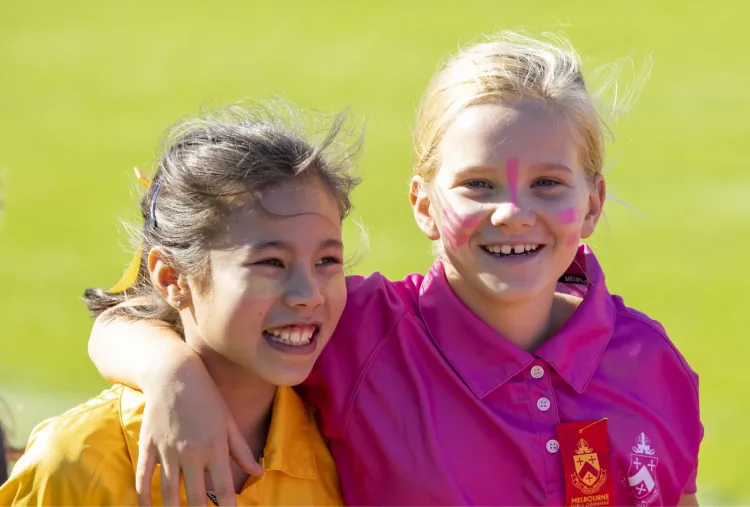
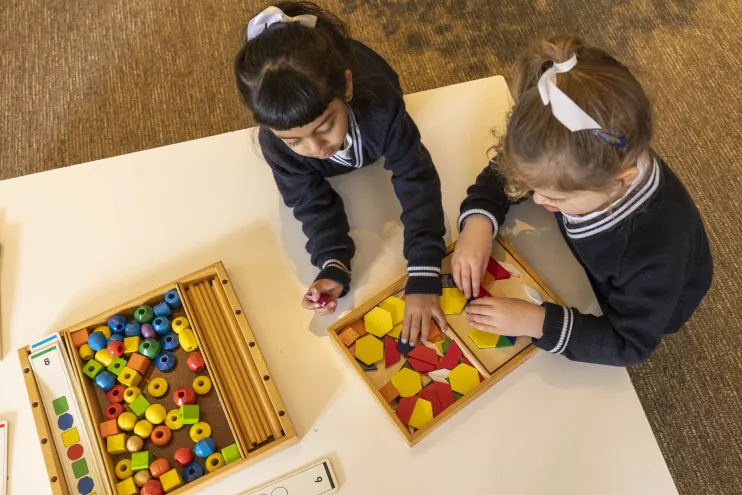
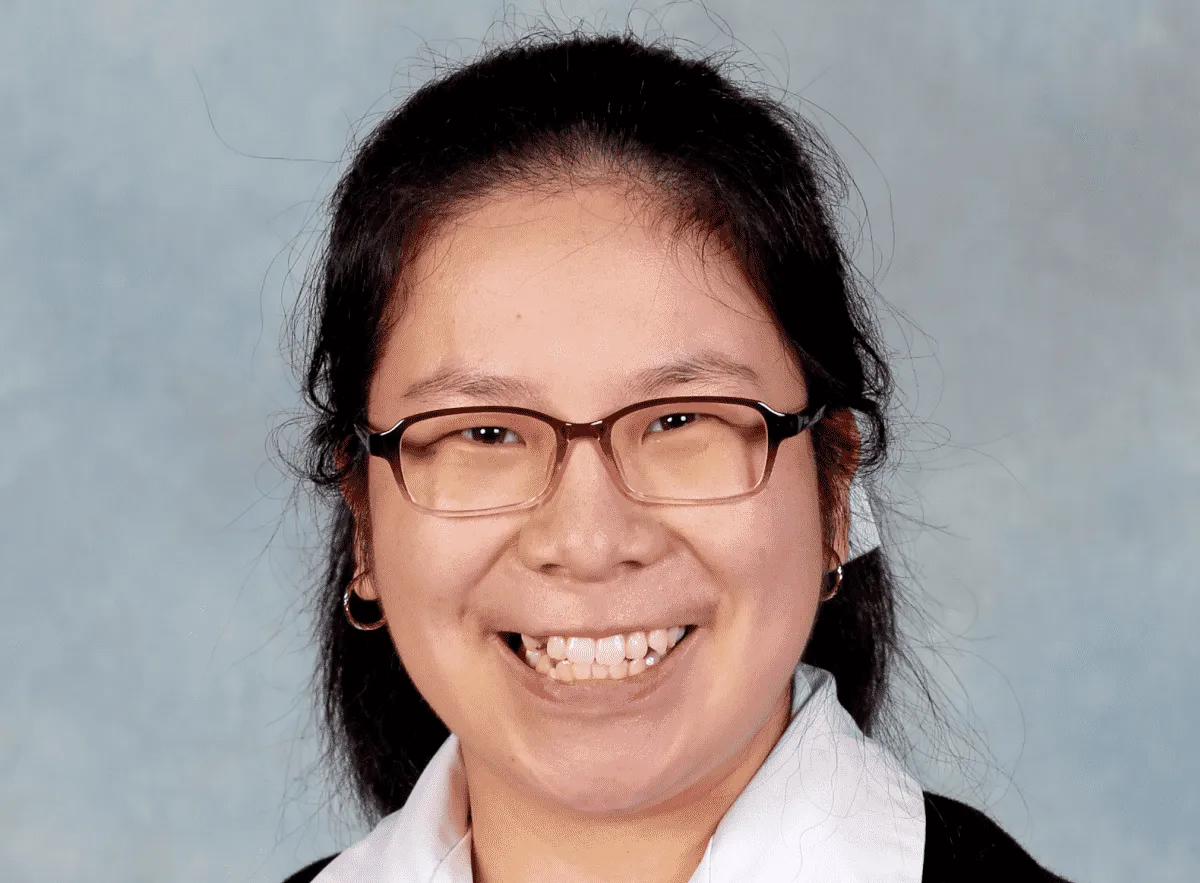
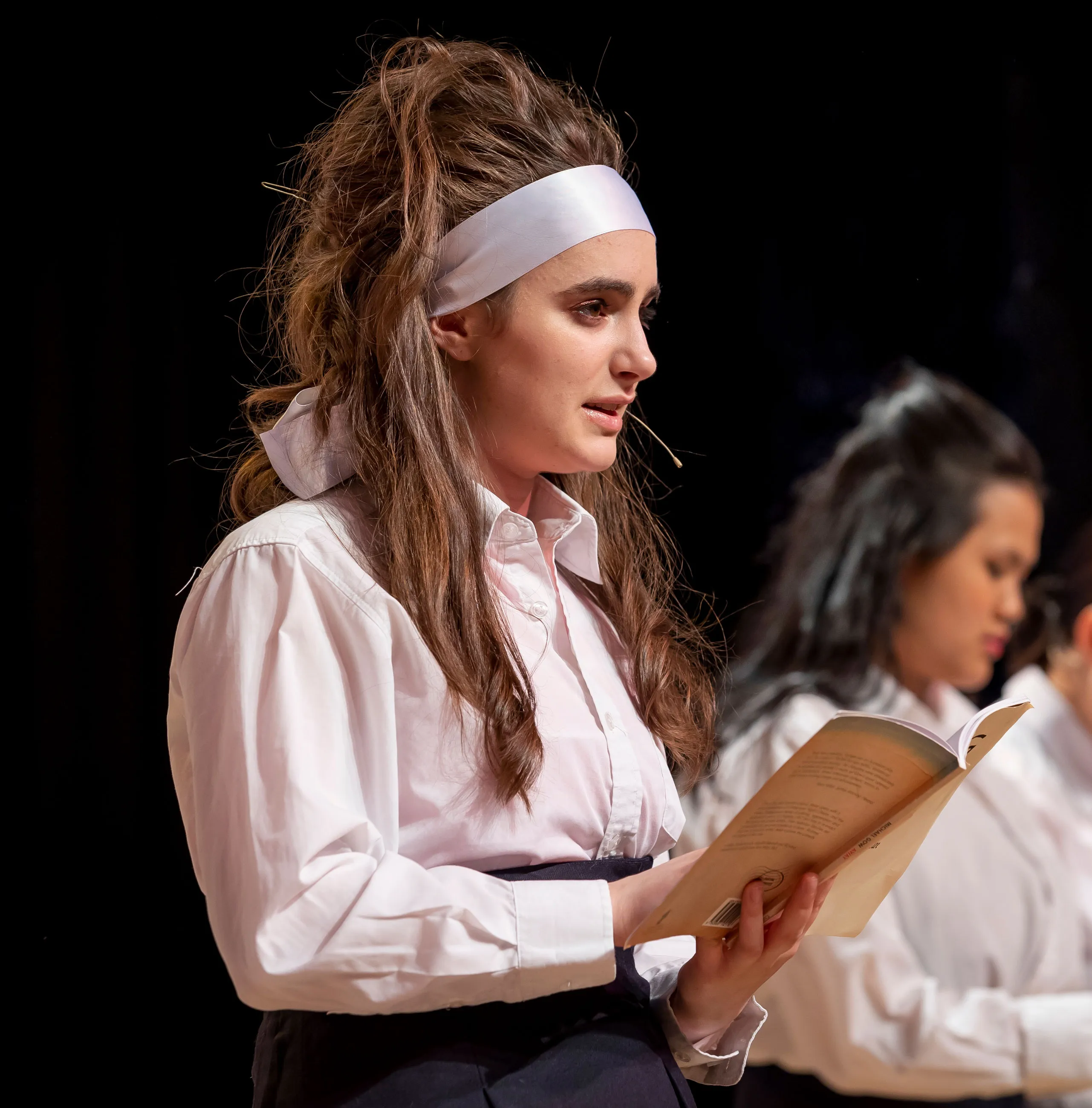
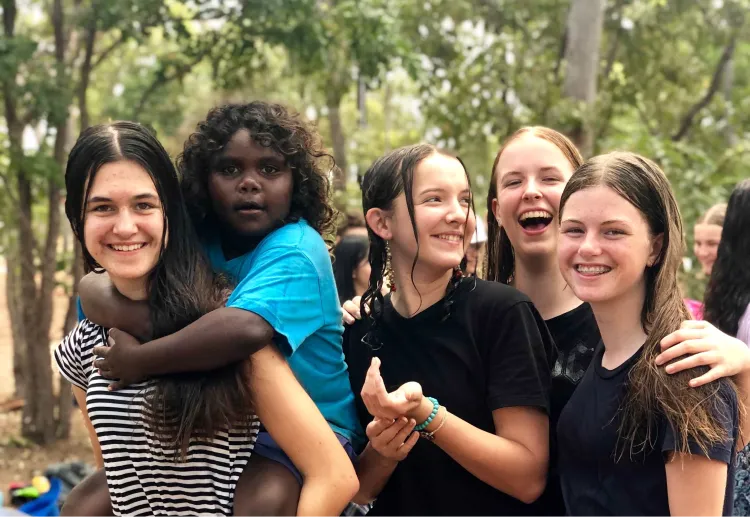
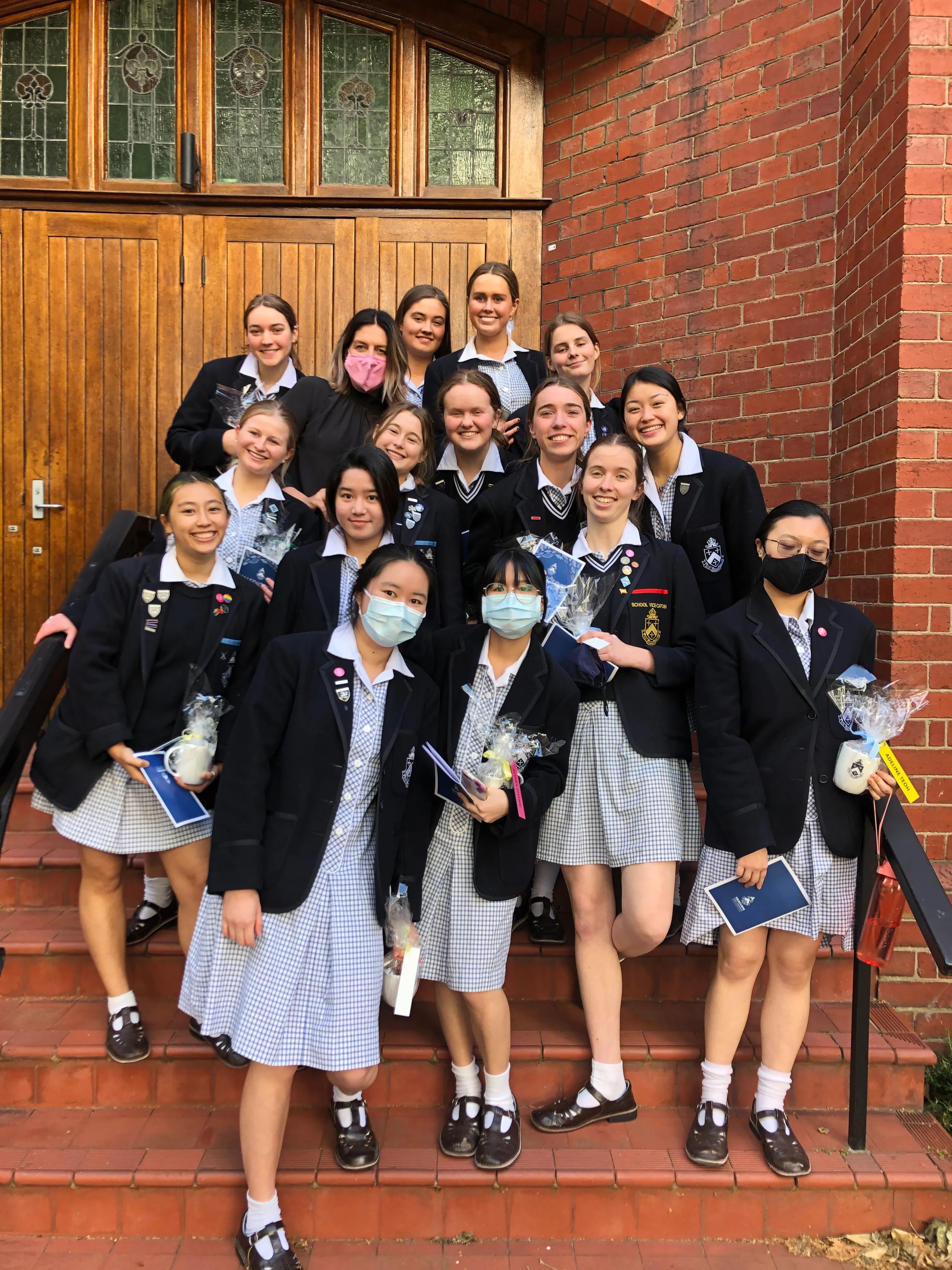

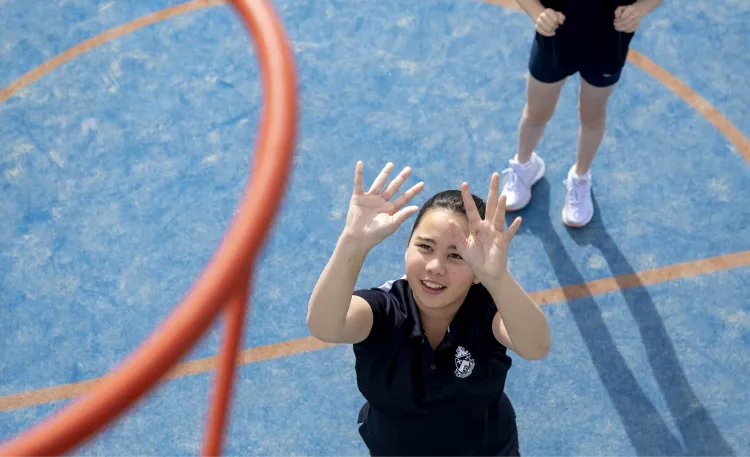
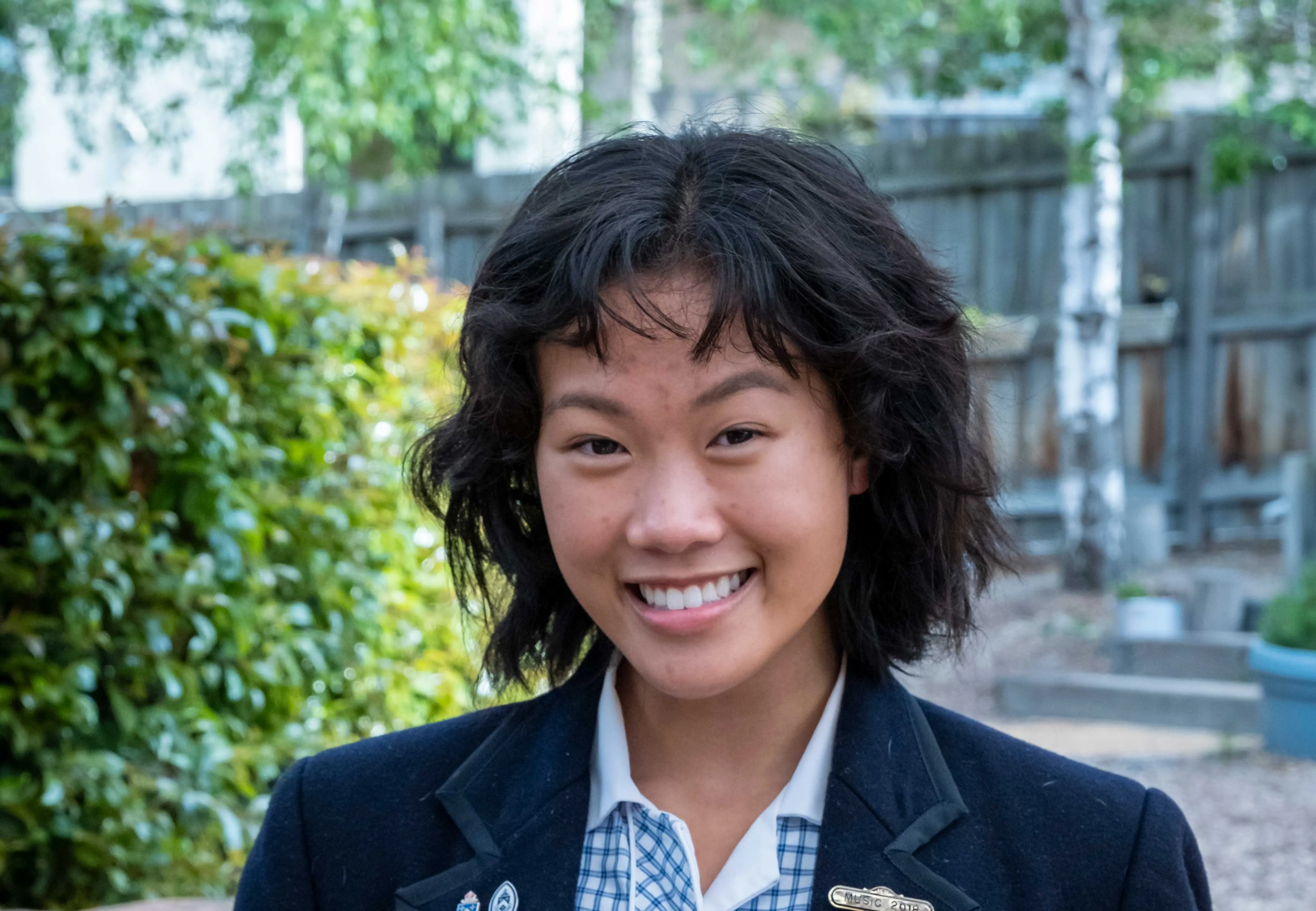
_crop.webp)


